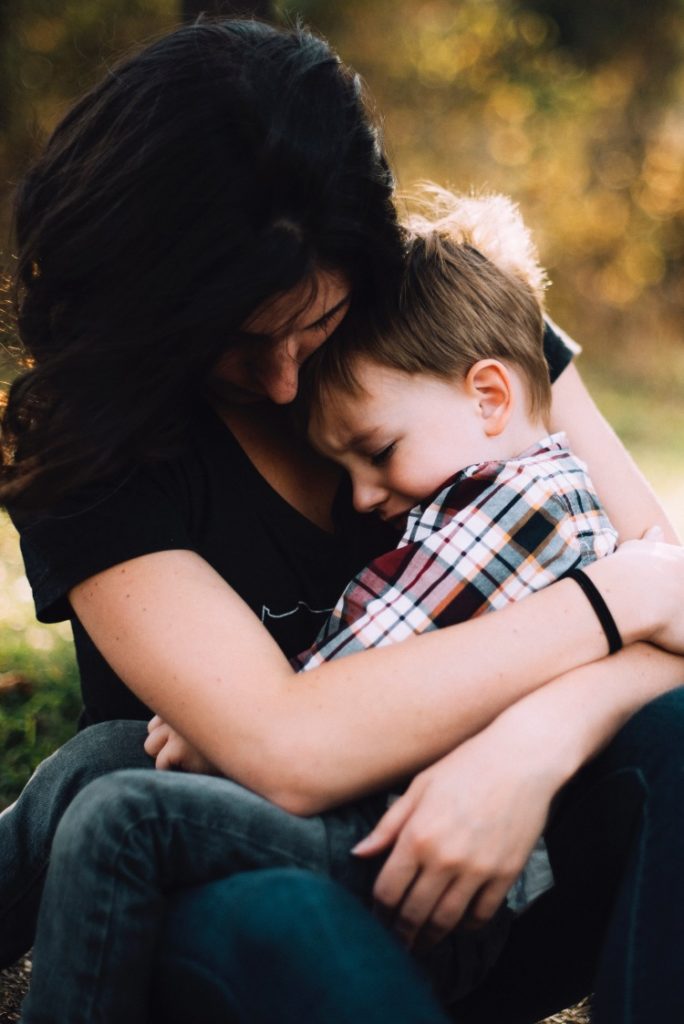Isn’t it funny how we all have such different opinions on how babies and toddlers should be brought up and how some parents take government guidelines so much more seriously than others? For example some parents sterilise everything their child touches until they are 1, some believe there is nothing wrong with the dishwasher. Other parents co-sleep, again others believe it’s too dangerous. Some parents vaccinate their children whilst others are dead against it. In this blog, I will not be giving my personal opinion, but I’ll be discussing Separation anxiety in babies and toddlers.
Separation anxiety in babies and toddlers is always a ‘hot’ topic. There is a lot, and I mean a lot of negative talk on social media about it, more specifically in parenting groups. People genuinely believe if you don’t follow recommended guidelines you are a bad parent. And they are very happy to tell you straight. Well, this is just not true. As detailed above these guidelines are ‘recommended’ and you do not have to follow them if you choose not to. We all have our reasons for doing what we do and no one on social groups are in a position to tell you that what you are doing is wrong.
The truth behind baby and toddler separation anxiety
So, what is Separation anxiety? And why are new parents concerned about Separation anxiety in babies and toddlers? Well, you will be pleased to know that separation anxiety is very common in babies and toddlers aged between the ages of 6 months and 3 years. It is a completely normal part of your child’s development and the majority of children grow out of it. Separation anxiety is when a child will cry and become destressed if their parent or primary care giver leave them, even for a short period of time.
Most parents find it hard to understand how their baby could be fine with other people and not get destressed at all when left and then all of a sudden, their baby will not settle with anyone else and becomes destressed if they are in unfamiliar surroundings. This is completely normal! The truth is at around 6 months a baby will be more aware of the world and realise how much they depend on the main caregivers in their lives, this includes anyone who has an involved part in the baby’s life.

How to deal with your child’s separation anxiety
You are not a bad parent for leaving your distressed child at nursery or wherever it is you take them whilst you are away. It is perfectly normal to feel bad however, this is a major part in your child’s life to become more independent. You will not damage your child by leaving them feeling anxious. Again this is normal for your child to feel this way, and if they do it just means you have created a very special bond with them.
When leaving your child you should make sure you stay happy and positive when you say goodbye. Explain to them that you will be back and tell them when. It will eventually get easier for you both. A child with separation anxiety just needs to know that you are coming back for them. In the meantime they will be learning to cope without you and socialise with others. This is very important.
At this time you will be feeling guilty and sad whilst watching your child cry as you leave them, this will not change. You are a parent, a great one which is why you will always feel that way. You just have to learn to cope until your child is happy to be left with someone else.
Some tips to help you and your child with separation anxiety
Ease yourselves in slowly by leaving your child with someone they know well for a short period of time to start with. A quick trip to the shop for example. That way your child knows you are coming back. Then, start to go for a little longer. Finally, once they are used to this you should start to leave them in more unfamiliar settings.
Make plans with your child. Discuss what you will both do together when you pick them up. You could say something like ‘when I pick you up this afternoon, let’s head to the park to play on the way home’. Your child will then look forward to their plans with you and they will know you will be back to get them to fulfil your promise.
Comforters are a fantastic way to help a young baby with separation anxiety. This will be reassuring for them and remind them of you. Especially as it’s not so easy to explain what is going on.

When to get help for separation anxiety in babies and toddlers
Dr Rudkin has explained when to get help for separation anxiety on the NHS website. This is what he says:
“It’s completely natural for babies and toddlers to cry when they part from their main caregiver,” says Dr Rudkin. “But as babies get older, they’re more able to understand that people and things exist even when they can’t see them.”
Until that happens, it’s important your baby’s anxiety doesn’t stop them getting the most from new experiences like socialising and learning at nursery. And it shouldn’t stop you going to work.
“If your child’s separation anxiety is causing them a lot of distress, they are upset for a long time after you have left them, or it has been going on for more than a few weeks, talk to your health visitor,” says Dr Rudkin.
So parents, in conclusion it’s perfectly normal for your child to have separation anxiety from 6 months. It just means you have a fantastic bond with them and they will miss you very much whilst you are away. Follow the tips explained above to help with the scary step of leaving them.
I hope this blog has helped you understand Separation Anxiety in babies and toddlers in a little bit more depth. If you do need any help or advice, ensure you speak with your doctor or health visitor.
